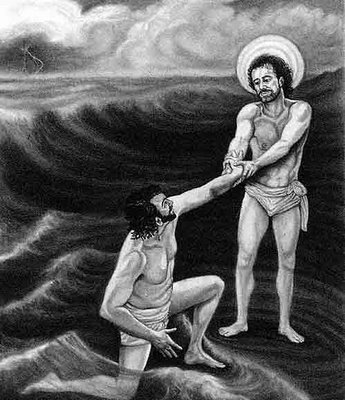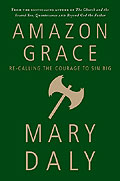
Sara Robinson posted Part II in her series on authoritarianism with an emphasis on the followers who recover and some reasons why: betrayal by authority, permission from authority, contact with people outside an authoritarian system, neutral ground to meet others, travel, resolution of fear, and turning points that can act as a "path into authoritarianism" or a "path out." She describes the "wall" between authoritarian followers and the rest of us. Her essay is worth the click.
As a recovered fundie, I would describe my authoritarian experience like living within a segregationist community--not in the racial sense of segregation although a streak of racism ran through my family system--but more as an ideological conclave. The work of recovery entails the proverbial changing hearts and minds. Sara:
We know, for example, that fear can transform the behavior of otherwise rational and not particularly authoritarian people. Fear creates physiological changes that impair the brain's ability to reason, and drives people to fall in behind whatever leader presents himself without asking too many questions. Like all herd animals, we are biologically driven to close ranks tightly behind the alpha in times of trouble. Resisting that impulse sometimes means fighting our own evolutionary imperatives. And, as we are now too well aware, unscrupulous leaders will not hesitate to create, manipulate, and perpetuate fear in order to activate that instinct and keep their followers at heel.
Thus, some people who've never been natural followers sometimes get caught up in authoritarian religion and politics in the wake of deep personal losses: unemployment, divorce, a death in the family, arrest, and so on. Entire populations (or, at least, a good fraction of the whole) can take the same path when faced with large collective losses. Kevin Phillips, in American Theocracy,, points out that the South's authoritarian streak (which always ran deep) grew rigid and hard after their loss in the Civil War. Karen Armstrong, in The Battle for God, points out that fundamentalist movements commonly begin in communities that perceive themselves under economic, political, or geographic siege. The way America came together under FDR after Pearl Harbor is the stuff of national legend. And the Bush Administration has exploited this tendency shamelessly in the wake of 9/11.
Cut loose from our moorings, in over our heads, we all look for something solid to hold onto. No matter how strong we are, we've all got areas where we are brittle and vulnerable. It's hard for any of us to say for sure that we'd walk away from an authoritarian leader who promised us precisely the right kind of salvation in precisely the wrong moment. This is something to bear in mind whenever we deal with authoritarian followers: they have simply responded to an impulse that exists -- at least to some degree -- in all of us.Ah, compassion. If we can but respond compassionately to people who have fallen into fear, isn't a return to love the way out? And if our brothers and sisters can't do it for themselves, who among us has been inspired to reach out and extend the hand of compassion? I included the above drawing, Walking On Water, because symbolically, it reminds us that "love wakes us up, causes us to rise above that which we fear and keeps us whole." Such an idea isn't exclusively Christian. How can we reach out in the midst of a threatening storm and overcome fear? How can we respond compassionately to those who have persecuted us? That's the challenge I face, we all face.























|